According to dermatologists, the use of a sunscreen for the face is recommended because it reduces the risk of sunburn caused by UV rays, and premature aging of the skin. But with the number of sunscreens available, with different levels of protection, it can be difficult to find the right one. So, which facial sunscreen should you choose?
Here is our commitment, to make sure that we provide the best user experience and content quality:
You can support us by using our links to make your purchases (at no extra cost to you)! This sometimes earns us a commission which allows us to remain independent. More about us
Our selection
"Thanks to its specific formula, this melting and moisturizing sun cream effectively protects the face from UVA and UVB rays. Its plus, it has a…"
"Eucerin's flagship product, this facial sun cream helps prevent premature aging of the face and the appearance of pigmentation spots. Effective, it protects against harmful…"
"Enriched with a battery of natural active ingredients and antioxidants, this dry touch sunscreen is the ultimate protection your face needs every day. In addition…"
"Formulated primarily with hemp seed extracts, this facial moisturizer will moisturize faces and provide almost instant relief."
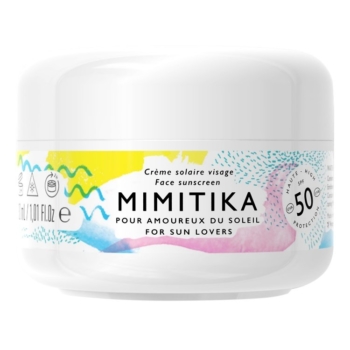
Thanks to its specific formula, this melting and moisturizing sun cream effectively protects the face from UVA and UVB rays. Its plus, it has a natural active ingredient that allows it to stimulate the natural production of melamine.
12,72 £ on Beauty SuccessThis facial is made special by the presence of a natural active ingredient, extracted from a seaweed, that boosts the production of melamine (known to accelerate the natural pigmentation of the skin). By using this item, your tan will be brighter, and it will also last longer. Enriched with antioxidant vitamin E, this water-resistant cream minimizes the actions of free radicals. It can be used as a classic sun cream or as a day cream.
This sun cream is recommended if you want to perfect your tan while protecting your face from the sun's harmful effects. If you have sensitive skin, this cream will act as a soothing balm. Moreover, its texture was thought so that it penetrates quickly and effectively your skin without leaving an indelicate white film on your face.
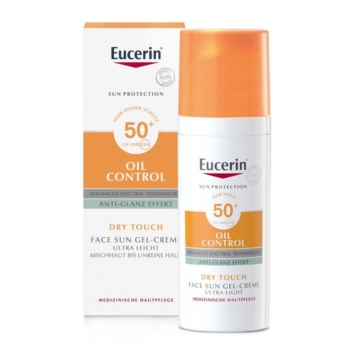
Eucerin's flagship product, this facial sun cream helps prevent premature aging of the face and the appearance of pigmentation spots. Effective, it protects against harmful rays.
10,46 £ on 1001Pharmacies.com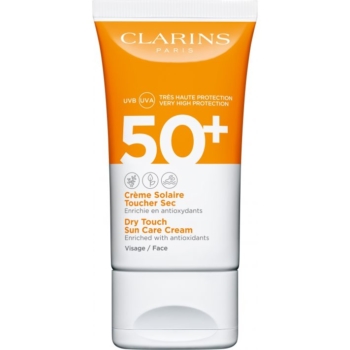
Enriched with a battery of natural active ingredients and antioxidants, this dry touch sunscreen is the ultimate protection your face needs every day. In addition to moisturizing, this cream also protects it from free radicals.
20,15 £ on MarionnaudWater and perspiration resistant, this cream will be perfect for you if you plan to spend some time in the sun, at the beach or simply at the pool. Whatever your skin type (dry, oily or combination), this sun face cream will provide you with the hydration and nutrients you need to protect you from free radicals brought by ultraviolet rays. In addition, this sun cream does not prevent you from tanning. On the contrary, it will help to even out your tan.
In addition to the many benefits it brings to the skin, this sun cream for the face is very appealing for its ease of use. As it is very light and melting, it is easy to spread and does not stick. Just try to reapply every 2 hours or when you get out of the water to maximize its effectiveness.
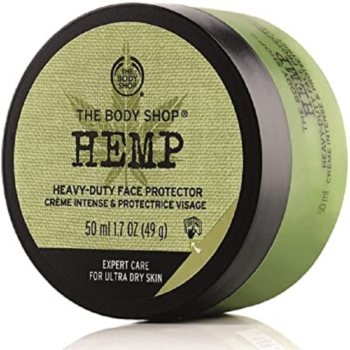
Formulated primarily with hemp seed extracts, this facial moisturizer will moisturize faces and provide almost instant relief.
11,20 £ on The Body ShopAs the weather approaches, are you looking for a protective treatment for your face? Try this moisturizing facial cream for dry skin. With one simple application, this cream will soothe your skin by providing all the moisture it needs to resist the sun's UVA and UVB rays. In addition to relaxing, your skin will appear younger and brighter.
This treatment owes its high effectiveness to hemp, which is recognized for its numerous aesthetic and cosmetic virtues on the skin. This plant contains a high level of essential fatty acids such as omega 3, omega 6, but also essential nutrients and antioxidants such as vitamin A and vitamin E. In many ways, this cream is perfect for intensely moisturizing facial skin.
Any specific needs?
The best face sunscreen in 2021
The best entry-level face sunscreen
The best high-end face sunscreen
The best hemp-based face sunscreen
Your guide :
Rate this buying guide :By rating this buying guide, you are helping us to reward our best writers. Thank you!
| THE BEST | CHEAPEST | TOP OF THE LINE | EXCELLENT | |

In accordance with our commitment, this buying guide does not contain any sponsored products. |
 8/10 |
 8/10 |
 9/10 |
 8/10 |
| OUR SELECTION |
Mimitika sun cream face
|
Eucerin Sun Protection Oil Control
|
Clarins sun cream dry touch face
|
The Body Shop HEMP protective face cream hemp
|
|
Thanks to its specific formula, this melting and moisturizing sun cream effectively protects the face from UVA and UVB rays. Its plus, it has a natural active ingredient that allows it to stimulate the natural production of melamine.
|
Eucerin's flagship product, this facial sun cream helps prevent premature aging of the face and the appearance of pigmentation spots. Effective, it protects against harmful rays.
|
Enriched with a battery of natural active ingredients and antioxidants, this dry touch sunscreen is the ultimate protection your face needs every day. In addition to moisturizing, this cream also protects it from free radicals.
|
Formulated primarily with hemp seed extracts, this facial moisturizer will moisturize faces and provide almost instant relief.
|
|
|
Jar volume
|
50 ml
|
50 ml
|
100 ml
|
50 ml
|
|
SPF 50
|
|
|
|
|
|
Skin types
|
All
|
Oily skin with acneic tendency.
|
All
|
Dry and very dry skin
|
|
Specific actions
|
Stimulates melamine production for a perfect tan.
|
Prevents premature aging of the skin and the appearance of pigmentation spots.
|
Protects the face from free radicals and reveals the tan.
|
Intensely hydrates the face.
|
|
Benefits
|
Polyvalent, this sun face cream can be used as a day cream.
|
Allows the skin to regulate sebum production.
|
Provides antioxidants to the face.
|
This sun face cream can be used all seasons.
|
Help us improve this table:
Report an error, request the addition of a feature to the table, or suggest another product. Thank you for your kindness!
We spend thousands of hours each year studying the major specialized websites, analyzing products of hundreds of brands and reading user feedback to advise you on the best products.
We are a product review company with a single mission: to simplify your buying decisions. Our research and testing helps millions of people every year find the best products for their personal needs and budget.
To support us you can: use our links to make your purchases (which often earns us a small commission), share our articles on social networks, or recommend our site on your blog. Thanks in advance for your support!
To get the best protection, you should consider the following criteria:
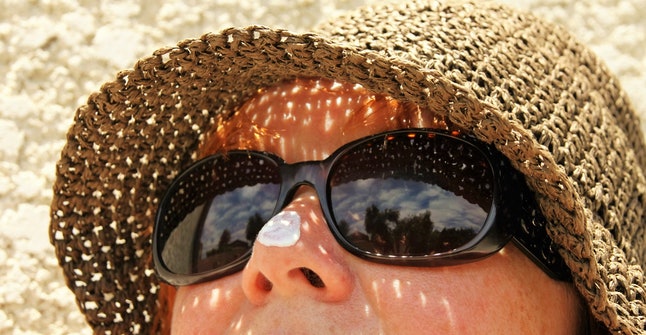
SPF is important, but you also need to make sure your facial sunscreen says "Broad Spectrum" so that it can protect against both UVA and UVB rays. SPF only describes protection against UVB rays, the sunburn rays that also damage your skin's DNA. UVA rays penetrate deeper into the skin, causing wrinkles and dark spots.
The
broadest sun protection comes from zinc oxide. Unlike chemical sunscreen ingredients like avobenzone and oxybenzone, it is not absorbed by your body.
In
addition to looking for zinc oxide for coverage, use zinc or titanium oxide sunscreens if you have sensitive skin. These two ingredients act as physical blockers. They are much less allergenic than all the other active ingredients in sunscreen that are known as "chemical blockers".
An
SPF 30 will block 97% of the sun's harmful rays. Most people don't apply their facial sunscreen as they should, so using a sunscreen with a higher SPF acts as a safety net to provide the most protection.
Water-resistant types of facial sunscreen are suitable for hot days or during sports activities. Keep in mind that these types of sunscreens are stickier and need to be reapplied every couple of hours, but they are very effective in protecting you when you go to the beach, for example.
It is generally accepted that the minimum acceptable SPF is 30, below which facial sunscreen does not protect effectively. However, it is important to note that higher numbers on labels are more about marketing than actual protection.
Infact, theFDA is proposing to ban sunscreens labeled with an SPF above 50 because there is no scientific evidence that they offer more protection than lower numbers. The suggested recommendation is aminimum SPF of 30 and a maximum of 50.
It should be noted, however, that the level of protection required also depends on a person's skin tone. For example, a person with dark skin, who is less sensitive to the effects of the sun and lives in a temperate climate, may opt for an SPF 20 cream.
There are two types of facial sunscreens: physical sunscreens and chemical (mineral) sunscreens.
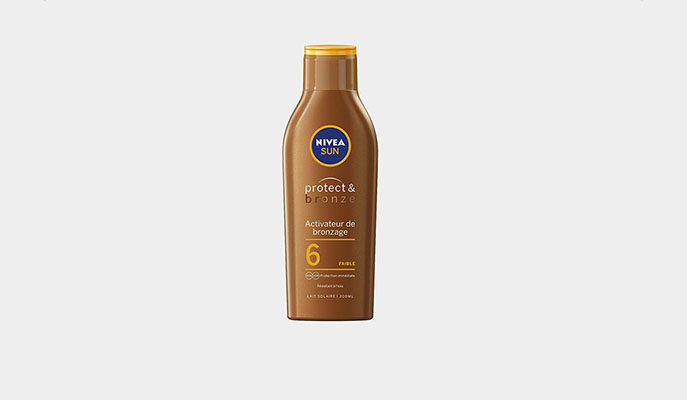
Physical sunscreens contain active mineral ingredients, such as titanium dioxide or zinc oxide, that work by covering the skin to deflect and disperse harmful UV rays. They are often called physical blockers.
Benefits:
Disadvantages:
Who is it for?
Physical sunscreens are best for people with heat-activated skin (such as rosacea and redness), as it diverts the heat and energy released by the sun away from the skin. Because they are also less likely to clog pores, they are ideal for acne-prone skin.
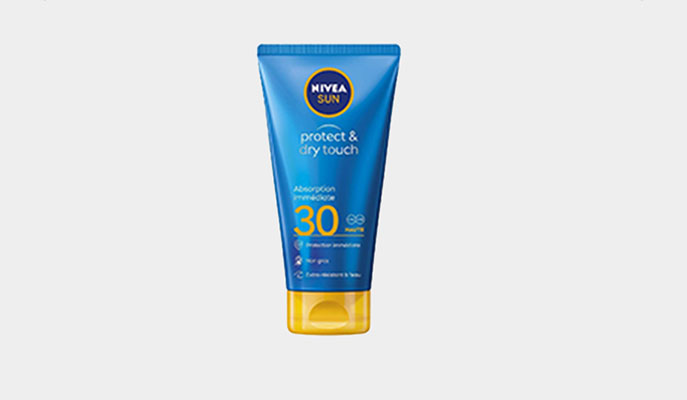
Chemical sunscreens contain organic (carbon-based) compounds, such as oxybenzone, octinoxate, octisalate, and avobenzone, which create a chemical reaction and work by converting UV rays into heat, then releasing that heat from the skin. They are often called chemical or organic absorbers.
Benefits:
Disadvantages:
Who is it for?
Chemical sunscreens are not suitable for people with sensitive or prone skin. They can increase redness in rosacea-prone skin, as this type of facial sunscreen turns UV rays into heat. It can also clog the skin. Therefore, they are best suited for people who do not have skin problems.
Sunscreens block ultraviolet rays which are designed according to the protection factor or SPF. This can be as high as 50% to protect the skin. You can tan and expose yourself safely to the sun depending on the result you expect. Those who want an express tan can opt for creams rich in caffeine and tyrosine. These ingredients stimulate the synthesis of melanin, which is a natural mechanism for skin pigmentation. After applying a sun cream for the face, your skin will glow.
However, the cream can be really harmful if you opt for the poor quality creams. The chemical filters in the products can cause eczema or other allergies. Redness can also occur if you have fragile skin while applying a product that is not suitable for your face.
A tan is the sign of a good summer holiday and sun oil is perfect for that. Its texture is now very easy to apply, it is very popular. It allows the passage of UVB which activates the tanning quickly. However, it offers an adequate degree of protection against strong sunburns.
However, oils are very easy to remove from the skin and do not provide protection for sensitive and fragile skin. Poor quality oils can be harmful to your health because they will not filter out harmful rays.
So, the choice is up to you, taking into account your skin type and the result you want to achieve. Indeed, if you have a fragile skin, opt for creams with a protection factor higher than 30. On the other hand, if you have very resistant skin, you can opt for the use of sun oil. It acts quickly on your skin to accelerate tanning.
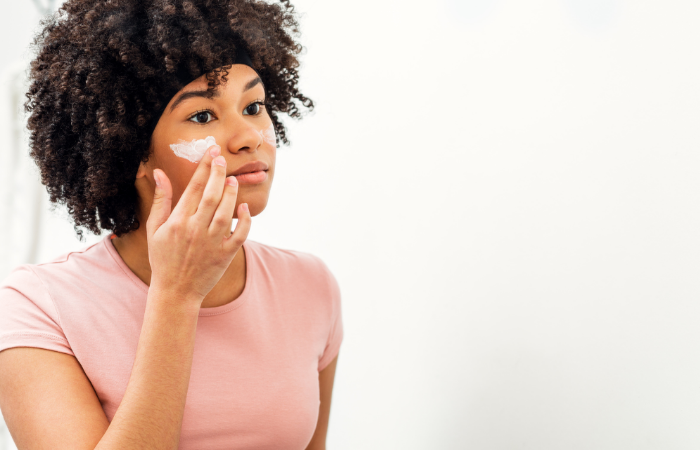
To protect yourself from UV rays
The sun's rays have a destructive effect on the skin, especially on the face, especially if you are exposed to the sun for a long time. Applying sunscreen to your face will help protect you from sunburn and sunstroke, but also from skin cancer. It acts as a kind of screen to prevent the rays from attacking your skin.
To moisturize the face
Facial sun creams have a moisturizing property. That's why many people use it on the beach, in the city or for sunbathing on the terrace. Reapply every two hours. In addition, a sun cream for face can be easily slipped into your bags and this allows you to apply it anywhere and at any time.
To slow down skin aging
Some people think that sunscreen should only be used during the summer months. However, its regular application protects the skin of the face and limits the production of free radicals which are the cause of skin aging. Your skin will be firmer and you will no longer have those little spots that bother the eyes. It is thus an excellent protection for the skin of the face.
To soften the skin
Putting cream on the face is by no means a futility. In fact, the use of this substance softens the skin and eliminates the formation of blackheads. It is easy to apply and does not take long to work. You will see that your face will be smoother and you will feel younger.
To limit photosensitivity
The face is very sensitive to external elements, and obviously to the sun. Without any additional protection such as sun cream, especially for people on medication, the skin of the face becomes hypersensitive.
In our opinion, the best brands of sun creams face in 2022 are :
Garnier is a brand of cosmetic products that was created in 1904. Today, this French brand is part of the L'Oréal group. They are known for their high quality products at affordable prices. Their facial sunscreen is no exception to this rule.
Nivea is a brand of the German Beiersdorf Group. The very first Nivea skin care cream was sold in pharmacies in 1911. It is probably the world's best-known brand of skin and facial care products: its facial sun creams are often the first products that customers look for in the store.
Belle Azul is a young Barcelona-based brand that promotes natural beauty through natural products. All their products, including the sun cream for the face, are made from plant extracts and safe cosmetic ingredients.
This French brand was created in 1924 and specializes in the creation of skin care products for sensitive skin. Today, the brand belongs to the L'Oréal group. Its sun creams, especially those for the face, are among the most popular products on the market today.
Isdin is a brand that has been around for 40 years. Its products combine effectiveness and maximum safety with innovative textures to guarantee an unforgettable sensory experience. Its facial sunscreen was inspired by the concept of sunscreen used by surfers. The brand has improved on it to create a vegan face sunscreen.
The diagram below will help you to get an idea of the typical prices for each price range (entry-level, mid-range and high-end).
However, more expensive does not necessarily mean better.
We therefore advise you to always consult our ranking before deciding, rather than blindly relying on price ranges.
Apply sunscreen early.
Your skin can take up to half an hour to absorb sunscreen. So, apply sunscreen 30 minutes before you go outside.
Reapply sunscreen every two hours.
Don't assume that one layer of sunscreen is going to protect you for the whole day. Sunscreen wears off after only a few hours, so remember to apply it every couple of hours.
Don't be fooled by labels that state a high protection factor.
Anything above SPF 50 can encourage you to stay in the sun too long. But don't assume that your SPF 100 sunscreen will protect you for more hours than a bottle of SPF 30; it won't.
Avoid storing your sunscreen anywhere it gets hot.
Exposure to high heat can break down the lotion's ingredients and make it ineffective. Don't store it in your car or garage. Instead, keep your sunscreen in a cool, dry place.
Avoid sunscreens containing vitamin A and oxybenzone.
Eating vitamin A-rich vegetables is good for your health, but spreading vitamin A on your skin may not be. Government data show that tumors and lesions develop earlier on skin coated with creams containing vitamin A. Also avoid oxybenzone, which is a synthetic estrogen that penetrates the skin and can disrupt the hormonal system.
The best face sunscreen depends on your needs and budget. Read our buying guide to find out which products are the best.
Sunscreen ingredients work in two ways: scattering and/or absorbing ultraviolet (UV) radiation to prevent it from reaching the skin. Some sunscreens use both absorbing and scattering ingredients. Examples of scattering ingredients include zinc oxide and titanium oxide. UV absorbers use ingredients such as oxybenzone, octocrylene, 4-methylbenzylidene camphor and butyl methoxy dibenzoylmethane.
SPF stands for Sun Protection Factor. SPF is related to the time it takes for redness to appear on the skin with a protective cream compared to without a protective cream. The test is carried out in a laboratory. For example, if it takes 10 minutes for unprotected skin to show redness, a properly applied SPF30 sunscreen will, in theory, take 30 times longer or 300 minutes to start reddening. However, this level of protection is difficult to achieve in real life - factors such as skin type, ultraviolet (UV) levels, swimming/drying and the amount of sunscreen you apply can affect the level of protection. Therefore, we always recommend applying liberally every two hours or after swimming, sweating or towel drying. It is also important to apply 20 minutes before being exposed to UV light.
Broad-spectrum sunscreens offer protection against UVA and UVB rays, the two types of harmful ultraviolet radiation emitted by the sun. UVB is the main cause of sunburn, but both UVA and UVB contribute to the risk of skin cancer.
Sunscreen should be applied 20 minutes before UV exposure to create the intended barrier of protection. For an adult, the recommended application is 5 ml (about one teaspoon) for each arm, leg, front of the body, back and face of the body (including neck and ears). This equals a total of 35 ml (about seven teaspoons) for a full body application.Sunscreen should always be reapplied at least every two hours, regardless of the water resistance of the sunscreen. Swimming, sports, sweating and towel drying can reduce the effectiveness of the product, so always reapply the sunscreen after these activities.
Every month we help more than 1 000 000 people buy better and smarter.
Copyright © 2022 - Made with ♥ by buyingbetter.co.uk
Your reviews and buying guides 0% advertising, 100% independent!